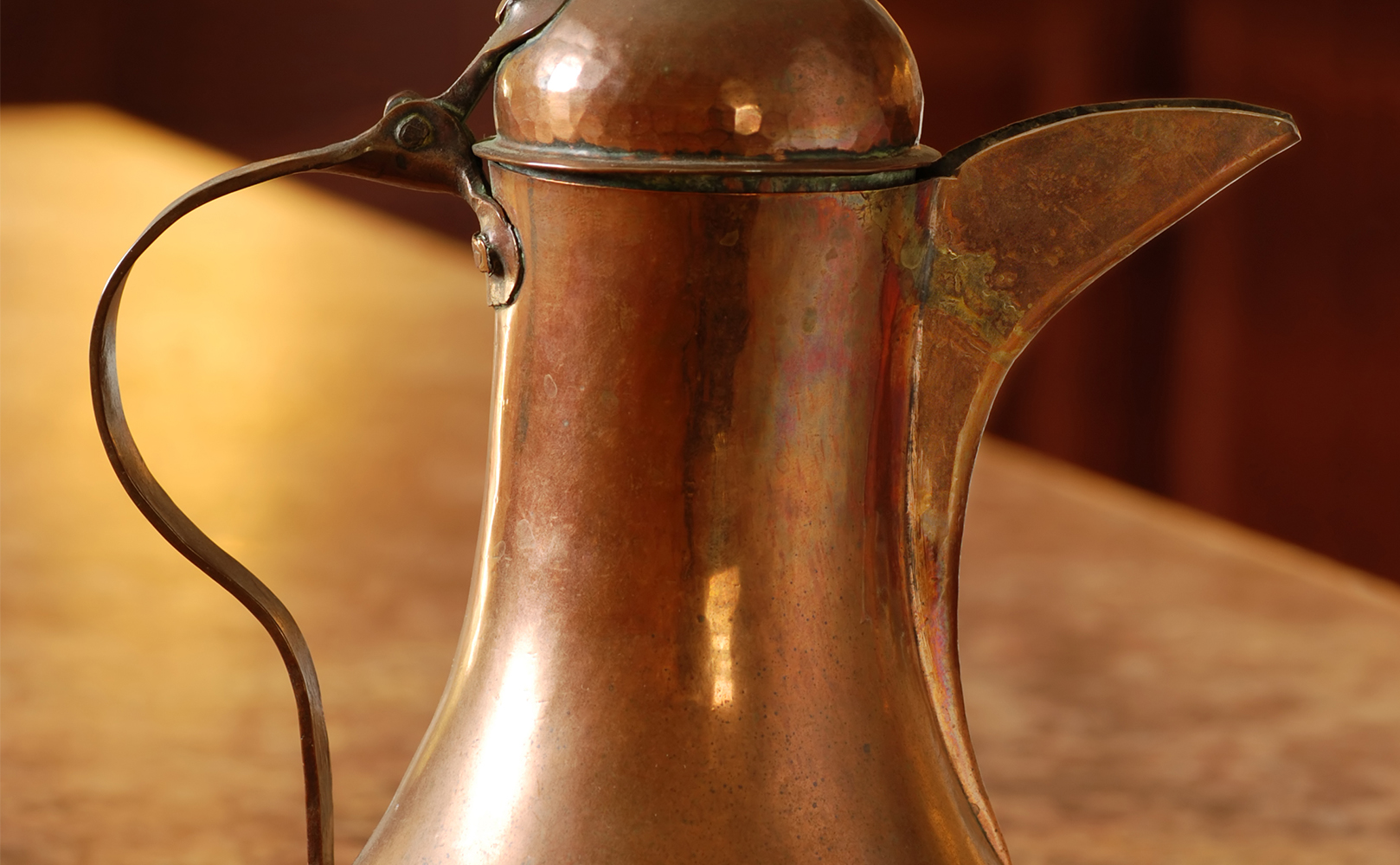Is Storing RO Water in a Copper Vessel a Good Idea?
Written by: Gene Fitzgerald // Last Updated: Jan 10, 2023
This page may contain affiliate links. If you buy a product or service through such a link we earn a commission at no extra cost to you. Learn more.
Storing water in copper vessels has its benefits.
But should you store your reverse osmosis water in a copper vessel?
In this article, we’ll discuss whether storing RO water in copper vessels is a good idea and if you should do it. We’ll also talk about the benefits and possible downsides of storing RO water in a copper vessel.
Key Takeaways
- Storing RO water in a copper vessel will cause copper leaching.
- Drinking copper-enriched water may lead to overconsumption since the standard US diet already meets/exceeds the copper required daily allowance.
- Still, copper is an essential nutrient and if your diet is lacking it, drinking copper water may benefit your health.
Is Storing RO Water in a Copper Vessel a Good Idea?
So, is storing RO water in a copper vessel a good idea?
Well, it depends.
First of all, if you store RO water in a copper vessel, it will leach copper from said vessel and thus become copper-rich (or copper water).
Now, drinking copper-rich water increases your daily intake of copper, obviously, which is great if you’re deficient. However, copper being a trace nutrient, we only need it in small amounts (900 mcg for adults). Besides, typical diets in the US easily meet or exceed the copper RDA (required daily allowance) already. So, not much to worry about actually.
Still, copper is an important nutrient in our diet. Deficiencies may cause cardiovascular disease, and some experts even associate it with Alzheimer’s disease.
Copper water has some acclaimed health benefits, too. Unfortunately, some of these benefits have no scientific backing (for instance: Weight loss, pH balance, tanning effects, and anti-aging effects). However, a few of these claimed health benefits are indeed backed by research (for example that copper water is proven to have antibacterial properties).
Here comes the downside: There are health risks from excessive copper intake, too. For one, long-time exposure to high levels of copper can result in liver damage.
So the question is, could storing RO water in a copper vessel result in overconsumption? Unfortunately, we couldn’t find any data to answer that question adequately. What we know is that, because RO water tends to be low pH and definitely low in alkalinity, it will leach copper from a copper vessel more aggressively than regular water. To what extent? We don’t know.
By the way, the MCLG (maximum contaminant level goal) for copper in drinking water has been set at 1.3 ppm by the EPA. That’s considered a safe level not causing any health issues.
Verdict: While storing RO water in copper vessels can provide extra copper, it is rarely necessary since you probably already get all the copper you need from your regular diet. Also, if you practice enriching your RO water with copper, be careful not to consume excessive levels of copper over an extended period of time.
Are There Any Side Effects of Drinking Reverse Osmosis Water from a Copper Vessel?
Since RO water stored in a copper vessel will have a high level of copper, drinking too much of it is bound to have side effects. One of them is copper toxicity.
Copper Toxicity
Copper poisoning, also known as Coppereidus, is caused by excess copper in the body. It can arise from long-term exposure to high levels of copper from water and food sources and genetic conditions like Wilson’s disease.
Signs of copper toxicity include:
- passing out
- nausea
- vomiting (sometimes with blood)
- diarrhea (may have a bluish color or contain blood)
- headaches
- fever and bodily chills
- muscular convulsion or weakness
- lack of urine due to kidney malfunction
- pain or burning sensation in the abdominal area
- abdominal cramps
- brown ring-shaped markings in your eyes (Kayser-Fleischer rings)
- yellowing of eyes and skin (jaundice)
- anemia
- metallic taste in the mouth
It may also come with behavioral symptoms such as:
- sudden mood changes
- anxiousness or irritation
- having trouble paying attention
- feelings of overexcitement or getting overwhelmed
- uncharacteristic sad or depressing feelings
Long-term effects of excess copper or chronic copper toxicity may cause:
- kidney conditions
- brain damage
- liver damage or failure
- loss of red blood cells
- heart failure
- death
How to Drink RO Water from a Copper Vessel
Drinking RO water from a copper vessel may still be beneficial if you do it correctly. Here are some tips we recommend:
- Don’t drink the water all day. Drinking copper water twice daily (once in the morning and again in the evening) should be enough to give you the desired benefits.
- Don’t drink copper water all year long.
- If you’re storing water in a copper vessel for its antibacterial effects, it’s best to leave it in the vessel for at least 16 hours or up to 24 hours. This will provide enough time for the copper to destroy all the microorganisms in the water.
- Always ensure you’re drinking from a genuine copper vessel. Buy the vessel from an authentic seller, and make sure it’s 100% copper.
- Rinse the vessel with natural acidic solutions like lemon and water before use.
- Never deep freeze a copper vessel
- Only use the vessel for water.
Washing Your Copper Bottle or Jug
Copper bottles and jugs are prone to corrosion, so it’s best to clean them daily. Here’s how:
- Clean the vessel with your hands. Don’t clean your copper bottle with strong dishwasher, scrubber, soap, or detergent. They oxidize copper and can damage your vessel permanently.
- Use a naturally acidic solution. Naturally acidic solutions are great for cleaning copper vessels. Lemon juice and salt in equal parts water will work wonders for your copper jug. You can also use lemon or tamarind with ash, baking soda, vinegar, or lime.
- You can occasionally use copper-shining salt to give the vessel a new look.
Important Things to Consider When Shopping for a Copper Vessel
Here are a few things you should keep in mind while buying a copper Vessel:
- You have to buy a 100% copper vessel. Buying one made with other metals exposes you to health risks.
- Buy copper vessels with wide mouths and uncomplicated bends. For example, a copper pot or jug would be best. This is because copper vessels are prone to corrosion and must be washed thoroughly. If there are any hidden crevices left unattended, corrosion could begin there.
- To test that a vessel is made from pure copper, rub lemon juice on its surface and clean it afterward with water. If the vessel becomes shiny, it’s pure copper.
- Always buy from a reputed or reliable shop.
What Are Some of the Claimed Health Benefits of Drinking Copper RO Water?
Some of the many benefits claimed to come from copper water include:
Improves Digestive System
Since copper has antibacterial properties, copper water improves digestion by killing harmful bacteria in the stomach. It’s said to also help break down food particles in our stomach. Copper water is also believed to be a remedy for infections and ulcers; the effects are that it reduces inflammation in the stomach, detoxifies it, and remedies indigestion.
Weight Loss
Copper is believed to play a vital role in the conversion of energy. It’s supposed to do this by breaking down fat cells, which produce energy. So one of the claimed benefits of drinking copper water is that it breaks down fat more effectively in our body, which may in turn lead to weight loss. However this benefit is controversial because some studies have associated high levels of serum copper to obesity.
Slowed Aging
Studies have shown that due to the role copper plays in producing collagen proteins, it can help reduce the lines and wrinkles that appear on the skin during old age. Collagen has a way of plumping up the skin and reducing the appearance of wrinkles.
Your Heart
The American cancer society has conducted research confirming that copper helps regulate blood pressure and heart rate. So it helps in heart conditions like hypertension. Copper has also been reported to lower the levels of bad cholesterol in the body.
Your Thyroid Gland
Copper is an essential mineral involved in thyroid hormone synthesis. It plays a role in the working of the thyroid gland and often regulates or prevents the excessive absorption of thyroid hormone into the blood. However, the body requires a balanced intake of copper for the thyroid gland to function properly, and excess consumption could result in complications.
Your Skin
Copper plays a role in the pigmentation of the skin. It assists in the production of melanin which is the pigment responsible for the color of our skin, hair, and eyes. Copper helps in reducing the graying of hair as well as improving the firmness and elasticity of the skin.
Immune System
As a result of its antibacterial, antiviral, and anti-inflammatory properties, copper is believed to help to strengthen the immune system. It assists in fighting infections in the body due to this.
Wound Healing
Copper helps to quicken the wound-healing process. This is because of its anti-inflammatory properties and the fact that it promotes the formation of new blood vessels. It also prevents wounds from getting infected with bacteria or viruses.
Arthritis
Copper’s anti-inflammatory properties make it an essential mineral in managing arthritis which is an inflammatory disease. Its properties help to relieve the pain caused by inflamed joints. Its bone-strengthening properties also help the condition significantly.
If you have any questions about storing RO water in a copper vessel please don’t hesitate to leave a comment below!
Information provided on BOS is for educational purposes only. The products and services we review may not be right for your individual circumstances.
We adhere to strict editorial guidelines. Rest assured, the opinions expressed have not been provided, reviewed, or otherwise endorsed by our partners – they are unbiased, independent, and the author’s alone. Our licensed experts fact-check all content for accuracy. It is accurate as of the date posted and to the best of our knowledge.



